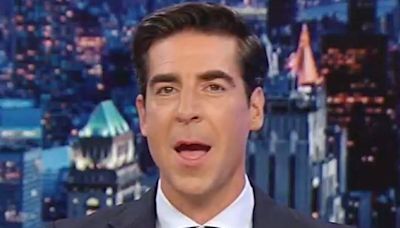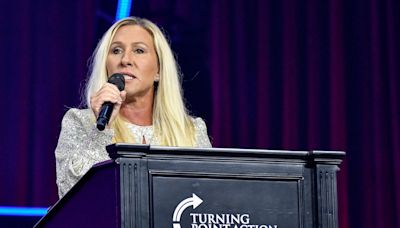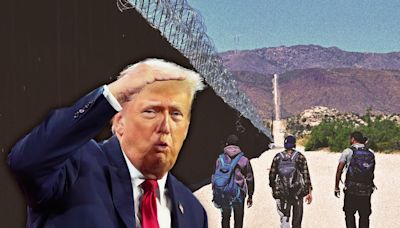Search results
- April 20, 1889. Adolf Hitler (1889–1945) is born in the Upper Austrian border town of Braunau am Inn, the son of tax collector Alois Hitler. Contrary to popular belief, he had no Jewish ancestors.
- 1908. Hitler moves to Vienna. His impoverishment and residence in homeless shelters began the following year after he had squandereda generous inheritance.
- 1913. Hitler moves to Munich, Germany, in May, and in the following year he enlists in the German army to fight in World War I.
- 1918. Hitler is partially blinded in a mustard gas attack near Ypres in Belgium. News of the November 11, 1918, armisticereaches him as he is convalescing in a military hospital.
Adolf Hitler was the leader (Führer), or unchallenged dictator, of Germany from 1933, when he came to power, until April 30, 1945, when he committed suicide in his bunker in Berlin. Born in Austria in 1889, he was initially unsuccessful in life, becoming a semi-vagrant in pre-WW1 Vienna.
- Overview
- Rise to power of Adolf Hitler
- Hitler’s life and habits
Discharged from the hospital amid the social chaos that followed Germany’s defeat, Hitler took up political work in Munich in May–June 1919. As an army political agent, he joined the small German Workers’ Party in Munich (September 1919). In 1920 he was put in charge of the party’s propaganda and left the army to devote himself to improving his position within the party, which in that year was renamed the National-sozialistische Deutsche Arbeiterpartei (Nazi). Conditions were ripe for the development of such a party. Resentment at the loss of the war and the severity of the peace terms added to the economic woes and brought widespread discontent. This was especially sharp in Bavaria, due to its traditional separatism and the region’s popular dislike of the republican government in Berlin. In March 1920 a coup d’état by a few army officers attempted in vain to establish a right-wing government.
Munich was a gathering place for dissatisfied former servicemen and members of the Freikorps, which had been organized in 1918–19 from units of the German army that were unwilling to return to civilian life, and for political plotters against the republic. Many of these joined the Nazi Party. Foremost among them was Ernst Röhm, a staff member of the district army command, who had joined the German Workers’ Party before Hitler and who was of great help in furthering Hitler’s rise within the party. It was he who recruited the “strong arm” squads used by Hitler to protect party meetings, to attack socialists and communists, and to exploit violence for the impression of strength it gave. In 1921 these squads were formally organized under Röhm into a private party army, the SA (Sturmabteilung). Röhm was also able to secure protection from the Bavarian government, which depended on the local army command for the maintenance of order and which tacitly accepted some of his terrorist tactics.
Conditions were favourable for the growth of the small party, and Hitler was sufficiently astute to take full advantage of them. When he joined the party, he found it ineffective, committed to a program of nationalist and socialist ideas but uncertain of its aims and divided in its leadership. He accepted its program but regarded it as a means to an end. His propaganda and his personal ambition caused friction with the other leaders of the party. Hitler countered their attempts to curb him by threatening resignation, and because the future of the party depended on his power to organize publicity and to acquire funds, his opponents relented. In July 1921 he became their leader with almost unlimited powers. From the first he set out to create a mass movement, whose mystique and power would be sufficient to bind its members in loyalty to him. He engaged in unrelenting propaganda through the party newspaper, the Völkischer Beobachter (“Popular Observer,” acquired in 1920), and through meetings whose audiences soon grew from a handful to thousands. With his charismatic personality and dynamic leadership, he attracted a devoted cadre of Nazi leaders, men whose names today live in infamy—Johann Dietrich Eckart (who acted as a mentor for Hitler), Alfred Rosenberg, Rudolf Hess, Hermann Göring, and Julius Streicher.
The climax of this rapid growth of the Nazi Party in Bavaria came in an attempt to seize power in the Munich (Beer Hall) Putsch of November 1923, when Hitler and General Erich Ludendorff tried to take advantage of the prevailing confusion and opposition to the Weimar Republic to force the leaders of the Bavarian government and the local army commander to proclaim a national revolution. In the melee that resulted, the police and the army fired at the advancing marchers, killing a few of them. Hitler was injured, and four policemen were killed. Placed on trial for treason, he characteristically took advantage of the immense publicity afforded to him. He also drew a vital lesson from the Putsch—that the movement must achieve power by legal means. He was sentenced to prison for five years but served only nine months, and those in relative comfort at Landsberg castle. Hitler used the time to dictate the first volume of Mein Kampf, his political autobiography as well as a compendium of his multitudinous ideas.
Hitler’s ideas included inequality among races, nations, and individuals as part of an unchangeable natural order that exalted the “Aryan race” as the creative element of mankind. According to Hitler, the natural unit of mankind was the Volk (“the people”), of which the German people was the greatest. Moreover, he believed that the state existed to serve the Volk—a mission that to him the Weimar German Republic betrayed. All morality and truth were judged by this criterion: whether it was in accordance with the interest and preservation of the Volk. Parliamentary democratic government stood doubly condemned. It assumed the equality of individuals that for Hitler did not exist and supposed that what was in the interests of the Volk could be decided by parliamentary procedures. Instead, Hitler argued that the unity of the Volk would find its incarnation in the Führer, endowed with perfect authority. Below the Führer the party was drawn from the Volk and was in turn its safeguard.
The greatest enemy of Nazism was not, in Hitler’s view, liberal democracy in Germany, which was already on the verge of collapse. It was the rival Weltanschauung, Marxism (which for him embraced social democracy as well as communism), with its insistence on internationalism and economic conflict. Beyond Marxism he believed the greatest enemy of all to be the Jew, who was for Hitler the incarnation of evil. There is debate among historians as to when anti-Semitism became Hitler’s deepest and strongest conviction. As early as 1919 he wrote, “Rational anti-Semitism must lead to systematic legal opposition. Its final objective must be the removal of the Jews altogether.” In Mein Kampf, he described the Jew as the “destroyer of culture,” “a parasite within the nation,” and “a menace.”
Discharged from the hospital amid the social chaos that followed Germany’s defeat, Hitler took up political work in Munich in May–June 1919. As an army political agent, he joined the small German Workers’ Party in Munich (September 1919). In 1920 he was put in charge of the party’s propaganda and left the army to devote himself to improving his position within the party, which in that year was renamed the National-sozialistische Deutsche Arbeiterpartei (Nazi). Conditions were ripe for the development of such a party. Resentment at the loss of the war and the severity of the peace terms added to the economic woes and brought widespread discontent. This was especially sharp in Bavaria, due to its traditional separatism and the region’s popular dislike of the republican government in Berlin. In March 1920 a coup d’état by a few army officers attempted in vain to establish a right-wing government.
Munich was a gathering place for dissatisfied former servicemen and members of the Freikorps, which had been organized in 1918–19 from units of the German army that were unwilling to return to civilian life, and for political plotters against the republic. Many of these joined the Nazi Party. Foremost among them was Ernst Röhm, a staff member of the district army command, who had joined the German Workers’ Party before Hitler and who was of great help in furthering Hitler’s rise within the party. It was he who recruited the “strong arm” squads used by Hitler to protect party meetings, to attack socialists and communists, and to exploit violence for the impression of strength it gave. In 1921 these squads were formally organized under Röhm into a private party army, the SA (Sturmabteilung). Röhm was also able to secure protection from the Bavarian government, which depended on the local army command for the maintenance of order and which tacitly accepted some of his terrorist tactics.
Conditions were favourable for the growth of the small party, and Hitler was sufficiently astute to take full advantage of them. When he joined the party, he found it ineffective, committed to a program of nationalist and socialist ideas but uncertain of its aims and divided in its leadership. He accepted its program but regarded it as a means to an end. His propaganda and his personal ambition caused friction with the other leaders of the party. Hitler countered their attempts to curb him by threatening resignation, and because the future of the party depended on his power to organize publicity and to acquire funds, his opponents relented. In July 1921 he became their leader with almost unlimited powers. From the first he set out to create a mass movement, whose mystique and power would be sufficient to bind its members in loyalty to him. He engaged in unrelenting propaganda through the party newspaper, the Völkischer Beobachter (“Popular Observer,” acquired in 1920), and through meetings whose audiences soon grew from a handful to thousands. With his charismatic personality and dynamic leadership, he attracted a devoted cadre of Nazi leaders, men whose names today live in infamy—Johann Dietrich Eckart (who acted as a mentor for Hitler), Alfred Rosenberg, Rudolf Hess, Hermann Göring, and Julius Streicher.
The climax of this rapid growth of the Nazi Party in Bavaria came in an attempt to seize power in the Munich (Beer Hall) Putsch of November 1923, when Hitler and General Erich Ludendorff tried to take advantage of the prevailing confusion and opposition to the Weimar Republic to force the leaders of the Bavarian government and the local army commander to proclaim a national revolution. In the melee that resulted, the police and the army fired at the advancing marchers, killing a few of them. Hitler was injured, and four policemen were killed. Placed on trial for treason, he characteristically took advantage of the immense publicity afforded to him. He also drew a vital lesson from the Putsch—that the movement must achieve power by legal means. He was sentenced to prison for five years but served only nine months, and those in relative comfort at Landsberg castle. Hitler used the time to dictate the first volume of Mein Kampf, his political autobiography as well as a compendium of his multitudinous ideas.
Hitler’s ideas included inequality among races, nations, and individuals as part of an unchangeable natural order that exalted the “Aryan race” as the creative element of mankind. According to Hitler, the natural unit of mankind was the Volk (“the people”), of which the German people was the greatest. Moreover, he believed that the state existed to serve the Volk—a mission that to him the Weimar German Republic betrayed. All morality and truth were judged by this criterion: whether it was in accordance with the interest and preservation of the Volk. Parliamentary democratic government stood doubly condemned. It assumed the equality of individuals that for Hitler did not exist and supposed that what was in the interests of the Volk could be decided by parliamentary procedures. Instead, Hitler argued that the unity of the Volk would find its incarnation in the Führer, endowed with perfect authority. Below the Führer the party was drawn from the Volk and was in turn its safeguard.
The greatest enemy of Nazism was not, in Hitler’s view, liberal democracy in Germany, which was already on the verge of collapse. It was the rival Weltanschauung, Marxism (which for him embraced social democracy as well as communism), with its insistence on internationalism and economic conflict. Beyond Marxism he believed the greatest enemy of all to be the Jew, who was for Hitler the incarnation of evil. There is debate among historians as to when anti-Semitism became Hitler’s deepest and strongest conviction. As early as 1919 he wrote, “Rational anti-Semitism must lead to systematic legal opposition. Its final objective must be the removal of the Jews altogether.” In Mein Kampf, he described the Jew as the “destroyer of culture,” “a parasite within the nation,” and “a menace.”
Hitler’s personal life had grown more relaxed and stable with the added comfort that accompanied political success. After his release from prison, he often went to live on the Obersalzberg, near Berchtesgaden. His income at this time was derived from party funds and from writing for nationalist newspapers. He was largely indifferent to clothes and food but did not eat meat and gave up drinking beer (and all other alcohols). His rather irregular working schedule prevailed. He usually rose late, sometimes dawdled at his desk, and retired late at night.
At Berchtesgaden, his half sister Angela Raubal and her two daughters accompanied him. Hitler became devoted to one of them, Geli, and it seems that his possessive jealousy drove her to suicide in September 1931. For weeks Hitler was inconsolable. Some time later Eva Braun, a shop assistant from Munich, became his mistress. Hitler rarely allowed her to appear in public with him. He would not consider marriage on the grounds that it would hamper his career. Braun was a simple young woman with few intellectual gifts. Her great virtue in Hitler’s eyes was her unquestioning loyalty, and in recognition of this he legally married her at the end of his life.
People also ask
What did Adolf Hitler do during WW2?
What was Adolf Hitler known for?
Who was Adolf Hitler?
How did Adolf Hitler rise to power?
How did media portray Adolf Hitler?
What was Hitler's most important achievement?
3 days ago · Adolf Hitler - Nazi Leader, WW2, Germany: Germany’s war strategy was assumed by Hitler from the first. When the successful campaign against Poland failed to produce the desired peace accord with Britain, he ordered the army to prepare for an immediate offensive in the west.
Feb 5, 2021 · What did Hitler do during World War One? Although Adolf Hitler was in his mid-20s at the outbreak of the First World War in 1914, he initially tried to avoid conscription. Then, when made to enlist, he failed the medical.
Hitler overcame personal, political, and legal issues that threatened his leadership of the NSDAP and his viability as a German leader in 1930-1932. On February 25, 1932, the Braunschweig State Ministry of the Interior, in Nazi hands since spring 1931, appointed Hitler as state government councilor.





